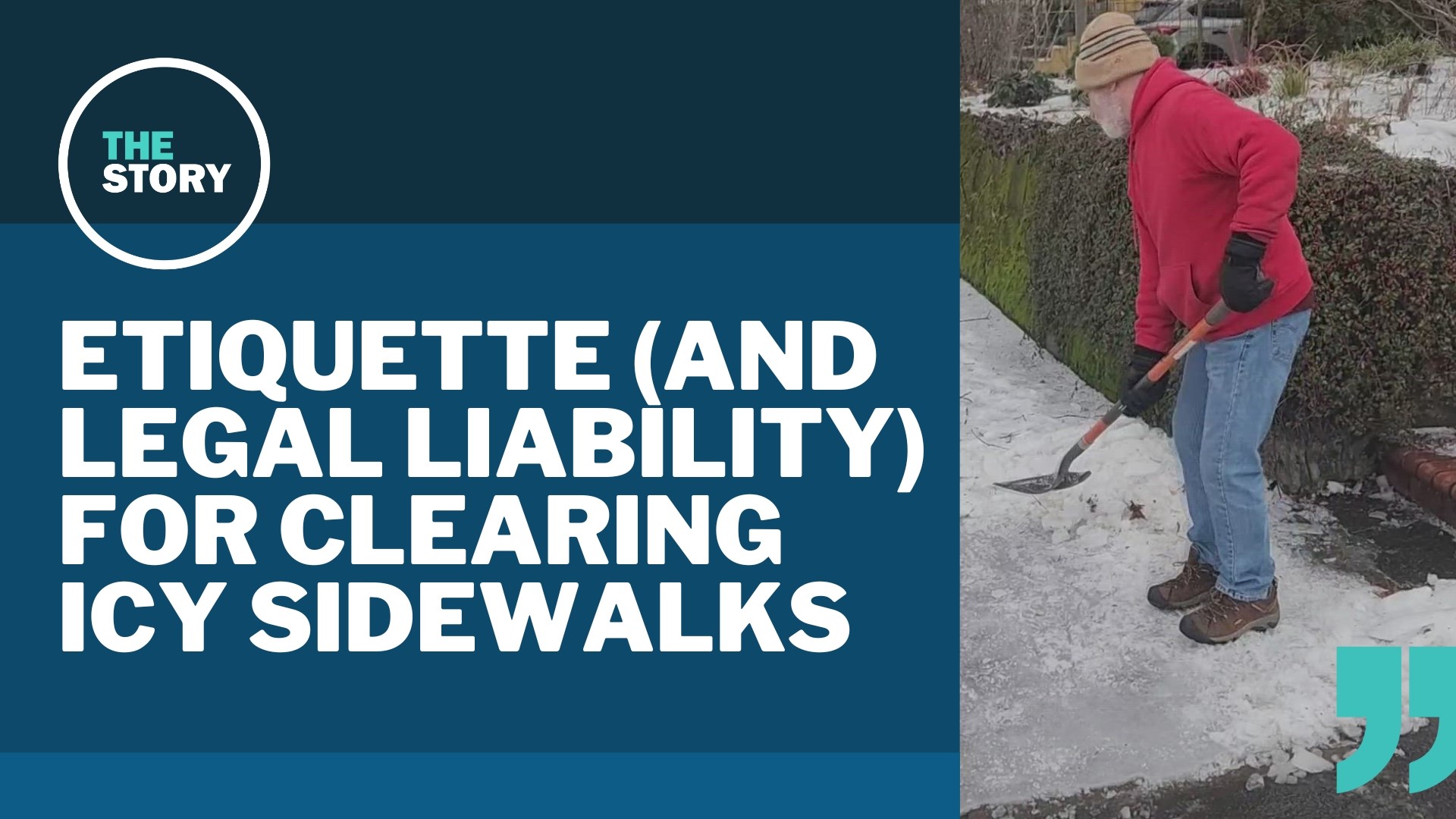PORTLAND, Ore. — Portland temperatures finally climbed above freezing early Wednesday afternoon following five days of brutal cold and two winter storms. Much of the city is still covered in ice, in some cases with layers of snow and sleet underneath, which raises an important question: now that the worse of the storm is over, whose job is it to clear the sidewalks?
It's a question that has come up repeatedly on social media over the years from homeowners, rental tenants and business operators. The often-repeated answer: Not only is it each property owner's responsibility, but the city of Portland actually requires them to get it done. So, is that true? Here's what we can VERIFY.
THE QUESTION
Does the city of Portland require property owners to keep their sidewalks clear of snow and ice?
THE SOURCES
- Portland City Code, Chapter 17.28
- Portland Bureau of Transportation
- Jason Kafoury, attorney at Kafoury & McDougal
THE ANSWER
Yes, the city of Portland requires all property owners to maintain their own sidewalks, which includes keeping them clear of snow and ice. The law assigns legal liability to the property owner, meaning they're the ones who can be sued if a person is injured while walking on a sidewalk that hasn't been properly cleared.
WHAT WE FOUND
Portland's city code tasks individual property owners with maintaining the sidewalk that runs along the edge of their land, even though most sidewalks are within the city's right-of-way. The code also specifies that those property owners "shall be liable for any and all damages" to anyone who is injured by poor sidewalk conditions adjacent to their property.
A separate subsection of the code addresses winter weather, stating that the owners or occupants of the adjacent property must remove snow and ice from the sidewalks and "shall be liable for any and all damages" to anyone who is injured if they don't remove it. Most other Oregon cities — and indeed most other American cities — have similar local laws.
Jason Kafoury, an attorney with Kafoury & McDougal, said his firm tends to see multiple sidewalk injury lawsuits after every big Portland ice storm, and the cases tend to be covered by insurance.
"99% of the time, you're looking at some sort of renters or homeowners insurance policy that's going to get involved if someone is seriously injured," he said. A person renting a house might be on the hook if they have renter's insurance, he added, but the person filing the claim would most likely seek payment from the property owner's insurance.
Portland's code doesn't specify a timeframe to remove snow and ice, but Kafoury said an injury case would probably hinge on what a reasonable person would do — so failing to remove snow after couple days would probably land a homeowner in more trouble than failing to remove it immediately during a blizzard. He pointed to Wednesday's icy weather as an example.
"Today's particular situation; it's probably more dangerous for a lot of people to be out there trying to clear the ice than it is for the person walking, and frankly, the person walking is going to have some pretty significant comparative fault claims against them too," he said.
A Portland Bureau of Transportation Winter Weather FAQ seems to agree, stating that occupants must clear their sidewalks "as soon as possible" after winter storms.
The winter weather subsection of the sidewalk code applies to both owners and "occupants" — meaning businesses have to clear the sidewalks outside their storefronts, and landlords have to clear the sidewalks outside apartment buildings.
"What we find often times is that it's not claims against homeowners; it's big landlords that don't keep the front areas and walkways safe for their tenants and their guests, and business owners, especially bigger business owners, that don't de-ice out in front of their business," Kafoury said. "... that really is your responsibility to keep that area safe, because you know people are coming in and out and you're inviting the public to come in and out."
Kafoury said in his experience, the city seems to focus its enforcement efforts on chronic problems like tree roots displacing the sidewalk, and doesn't tend to come after individual homeowners for short-term issues like snow — but the ordinance still leaves the homeowners on the hook if someone gets hurt.
Got a question or a story about Portland or Oregon that you'd like us to VERIFY? Drop us a line at verify@kgw.com.

